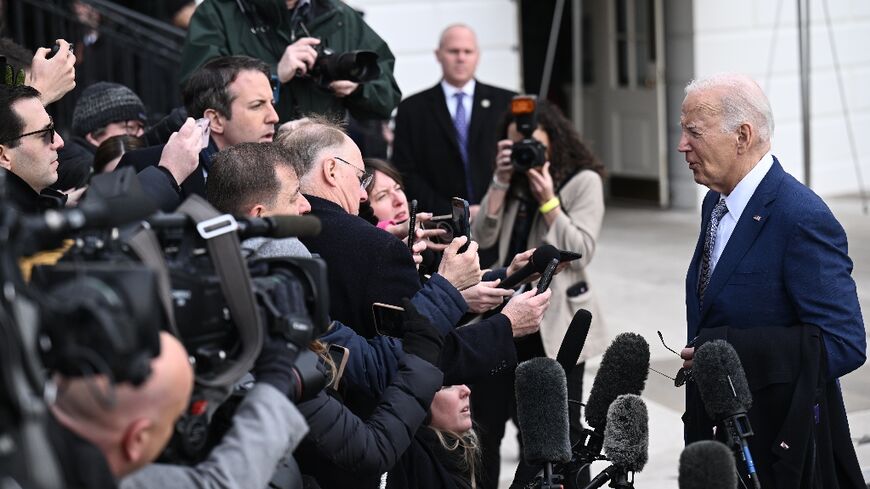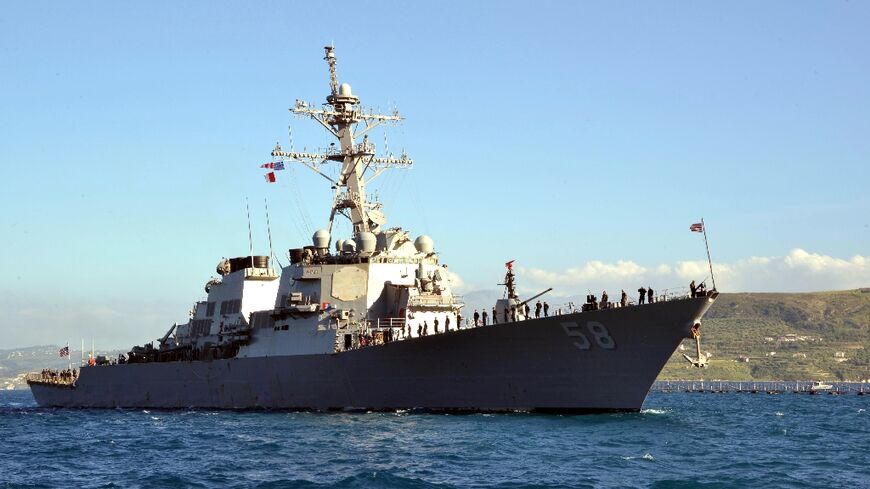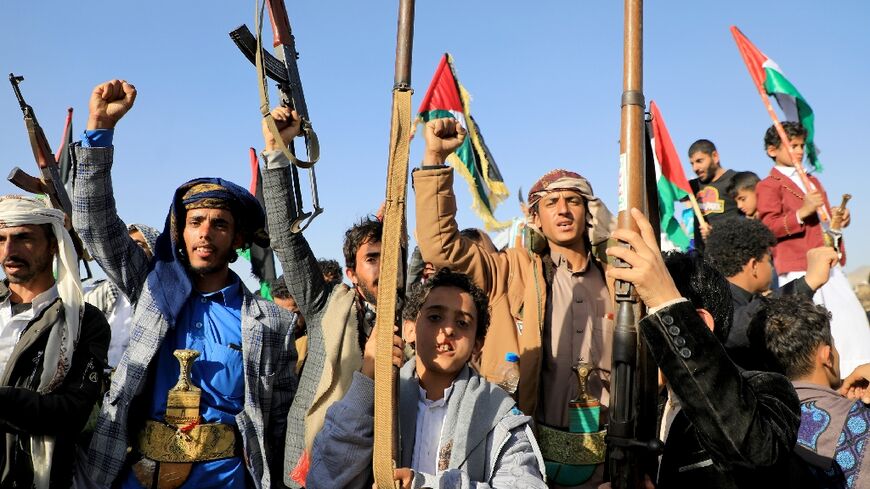Senior Yemen official says ground operation needed against Huthis

The deputy leader of Yemen's presidential council said Thursday that its military forces need foreign assistance to launch a ground operation that would back US and UK air strikes against Huthi rebels.
Aidarus al-Zubaidi, vice president of the Presidential Leadership Council based in the southern city of Aden, told AFP the aerial barrage alone was not enough to deter Huthi attacks on merchant ships in the Red Sea.
"An international and regional alliance is necessary to secure international navigation in the Red Sea," Zubaidi said in an interview at the World Economic Forum in Davos, Switzerland.
Zubaidi said a Saudi-led military intervention launched in support of the government in 2015, which has also involved air strikes, had been "insufficient" to deter the Huthis.
"Ground forces must be supported on the ground, and these forces belong to the legitimate government," he said.
"These forces are the ones who can achieve a victory on the ground, because strong strikes without ground operations are useless."
Zubaidi said in a written response to a follow-up question that foreign military aid should centre around intelligence sharing, capacity building, training and equipment.
"This approach enables local credible and effective forces to join up the effort with the Western targeted air strikes," Zubaidi said.
"This is a discussion we want to have with the US and UK," he said, clarifying an earlier statement saying that talks were taking place.
"The lack of a joined-up approach would only repeat the mistakes of past efforts," he said.
- 'Indecisive' strikes -
The Presidential Leadership Council unites various anti-Huthi groups.
Zubaidi heads the secessionist Southern Transitional Council, which wants to split the country back in two, reversing its 1990 unification.
Ahmed al-Saleh, the special adviser to the presidential council, also said the air strikes "were indecisive in the battle with the Houthis".
Saleh said the US decision to redesignate the Huthis as a "terrorist" entity "must be followed by additional steps, the most important of which is supporting the legitimate Yemeni government and its forces on the ground and ensuring full coordination to manage this battle".
"While there is coordination and communication with the Americans, it falls below the level required for this stage," Saleh told AFP.
Last month, Yemen's warring parties committed to a ceasefire and agreed to engage in a United Nations-led peace process to end the war, according to the UN envoy for Yemen.
The United States and Britain have intercepted missiles and drones fired by the Huthis and targeted launch sites in rebel-held areas in response to attacks that have disrupted global maritime shipping.
Around 12 percent of global trade normally passes through the Bab al-Mandeb strait, the Red Sea's entrance between Yemen and the Horn of Africa.
The Iran-backed Huthis say they are acting in solidarity with Gaza in the conflict between Palestinian militant group Hamas and Israel.





